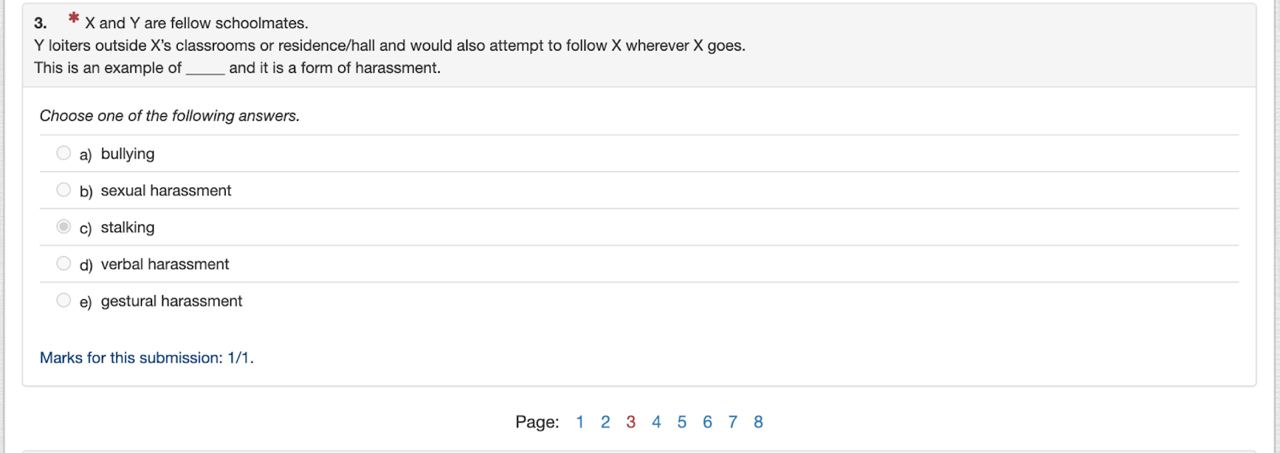Sexual misconduct; it’s a hotly debated topic, no doubt. On 3 November, Minister for State for Education Sun Xueling disclosed that in the past five years, our local institutes (which include the six autonomous universities, five polytechnics, and the Institute of Technical Education or ITE) have handled a total of 172 cases of sexual misconduct committed by students and staff. This translates into an incidence rate of 0.12 for every 1,000 staff and students.
The statistic was brought up by Ms Sun as she stressed her ministry’s “zero tolerance” towards such acts. “When there is a breach of those codes of conduct, the punishments are swift,” she said. She also added that both students and staff can be suspended or dismissed from the school for their actions.
Furthermore, since the dismissal of Jeremy Fernando, the National University of Singapore (NUS) has set up a victim care unit to handle cases of sexual assault. This measure has also been replicated at the other autonomous universities.
Tackling sexual misconduct in a holistic manner
In a similar vein, Minister for Education Lawrence Wong has stated that the Ministry of Education (MOE) has been “working closely” with institutes of higher learning to review and step up their efforts to tackle sexual misconduct in a holistic manner.
These efforts include educating students and staff on respect and appropriate behaviour, with face-to-face workshops, online modules, and student briefings during orientation. Surveillance on campus has also been beefed up, with expanded closed-circuit television (CCTV) camera coverage and increasing the frequency of security patrols.
What does “educating students” really mean?
Having a wide range of resources and initiatives dedicated to the education of students and staff sounds great, but what exactly are they teaching students?
I asked some students and staff from local universities to share what these modules and workshops were like. Here’s what I found.
The modules were structured in such a way that it required students to first watch a few videos about the topic (usually related to bullying, harassment, or sexual misconduct, etc.), and subsequently answer a few multiple choice questions:


For NTU’s module, students are made to sign a “pledge” after completing the quiz, where they henceforth commit themselves to be “an active role model of the anti-harassment policy and to make NTU a safer environment”.

What students have to say
As one might expect, the people that I spoke to had little good things to say about the modules.
“I would say while I appreciate the effort to educate students on harassment, I don’t think it’s very effective because it’s quite surface level and corporate because it’s a compulsory module, and they won’t release our grades if we don’t do it; also whoever was going to be a harasser is going to do it anyway.” — Michelle*, a student from NTU
“But I think the measures put in place by the school seem more like they [are a formality]. I’m not sure how they actually manage to educate [or] protect students. For example, the Respect and Consent module didn’t cover any new content that university-level students and staff were not already aware of.” — Dawn*, a staff at NUS
During my interview with Dawn (who is also a former student of NUS), I asked her to elaborate on what she feels needs to be done to truly alleviate and eradicate sexual misconduct in schools, and she responded, “perpetrators should be expelled rather than suspended… it seems that they don’t get punished harshly by the law either, and they are still able to get jobs without much issue.”
She also stressed the importance of having “people who would actually care about the problem and the victims of sexual harassment” because the issue seems to still be largely ignored by the staff and there is a tendency to “downplay the victims’ experiences”.
Can we do better?
Yes, steps have been taken to try and curb the issue and reduce the number of incidents, but it seems like the current attitude of school staff still fails to help foster a safe environment for students.
Instead of these seemingly tokenistic acts of educating students through the use of online modules (which students are forced to complete), is there space for healthy and constructive discussion about such a pertinent issue?
Apart from the obvious move of making punishment more severe for perpetrators, how can we look into inculcating the importance of consent and respect for one another?
Perhaps one way is to first be aware of the content that makes up our daily conversations, which usually reveals our perspectives. For instance, when we look at things like ‘locker room talk’, these may seem harmless at the surface level, but what it reveals is an extremely toxic view of gender. We might think that we know where to draw the line, but why risk it? Why not just abstain from it, just so that we can make university campuses a place where students do not have to fear being compromised?
Join the conversations on THG’s Facebook and Instagram, and get the latest updates via Telegram.














